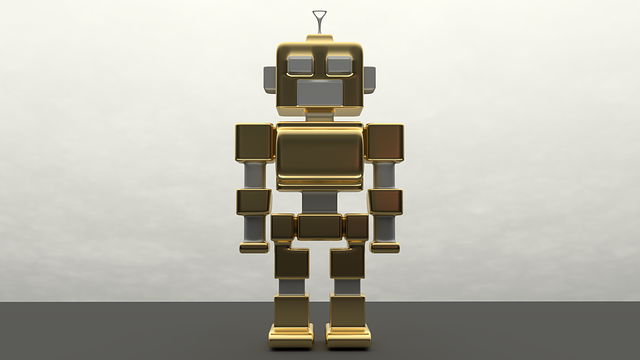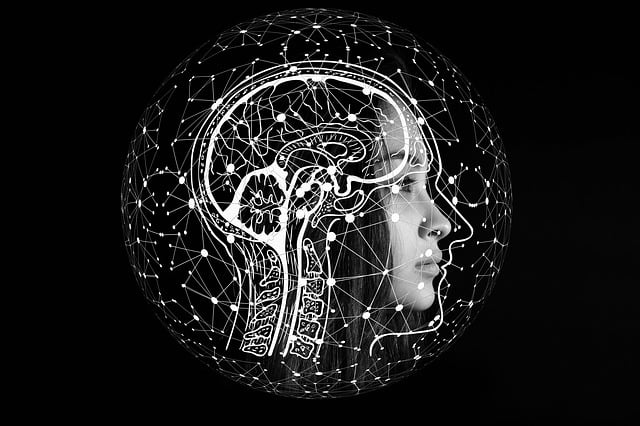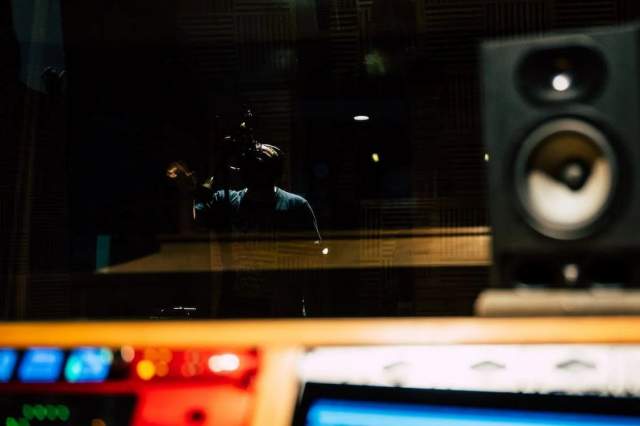AI Voiceovers vs. Human Voiceovers: The Benefits of the Human Voice

Who wins in the AI voiceovers vs. human voiceovers battle? Artificial intelligence (AI) voiceovers are becoming more prevalent in various forms of media.
Also known as synthetic voices, their popularity is due to their convenience and efficiency. This is why you could consider using AI voice technology in your content creation.
However, AI voices can also pose problems in your business. This is true even if you use them correctly.
In this article, we'll discuss why you should be careful of using AI voiceovers in your content.
At the same time, we'll look at how they stack up against human voice actors. Finally, we'll see why using human voices in your content is ultimately better.
But let's first tackle how AI voice-overs came about.
This article in 30 seconds
-
AI voice copies the human's natural-sounding speech with technology.
-
Brands use AI voiceover to automate customer engagement and provide multilingual support. They also use it for sonic branding for better brand retention.
-
AI voices are cost-effective and flexible. But they lack the human voice's range and emotion.
-
Despite its advantages, brands cannot overlook AI voice's shortcomings. This is why they still go to human voice actors for voiceover work.
-
The human voice's uniqueness, versatility, and professionalism remain unmatched.
-
Human speech's wide range of expressions also makes it more relatable. These qualities allow people to trust the human voice more.
What are artificial intelligence (AI) Voices?
AI means artificial intelligence. AI-voices refer to the AI-produced synthetic voice that mimics natural-sounding speech.
The continuous advancements in AI technology are already shaping the voice-over industry as we know it.
An example of this is Amazon Polly. By using deep learning technologies, Amazon Polly can synthesize natural-sounding human speech. This allows users to generate speech in dozens of languages.
Another example of an AI-voice is James Earl Jones. He recently "retired" as the voice of Darth Vader. But he gave Disney/Star Wars rights to use his voice by AI in future projects.
Types of AI Voices

Aside from the entertainment industry, brands are leveraging AI voice technology to their benefit. Below are a few ways they're doing it:
Personable Engagement
Brands use speech synthesis to replicate human-sounding voices to engage with their audience.
Normally, customer support waits in the other line to answer questions. Or a voice-over talent is reading the script for their marketing videos.
With an AI voice generator, they can produce the same output quality at scale.
Brands can use text-to-speech applications to produce synthetic speech. They can then set up custom voices to communicate with prospects and customers.
This approach lets them create various AI voices to retain—if not improve—audience engagement.
Multilingual Customer Interactions
There's now a need for businesses to interact with their audience using multiple languages.
By speaking in their native language, brands can connect with and retain customers more effectively.
However, building multiple support teams for this purpose is not feasible. This is true, especially for smaller brands.
In this case, AI voice technology is their saving grace. They can record automated messages in multiple languages as interactive voice responses (IVRs).
Brands can also provide multilingual support on their site. Visitors can listen to blog and product pages in their desired language.
Sonic Branding
As a marketing tactic, sonic branding uses sounds or voices to make people remember a brand. Famous examples include the Windows start-up sound and the Nokia ringtone.
People remember and associate these sound effects and mnemonics with the brand. This shows that the sound doesn't have to include a human voice to create a memorable brand.
Pros and Cons of AI Voice Generators
AI technology in voice-overs is a double-edged sword. There are advantages and disadvantages to using them for one's business.
If you want to leverage AI voiceovers, consider the factors below:
Pro: Cost-Efficient
Using text-to-speech software enables you to maximize resources. No longer must you hire people to do voiceover work. It's now possible to get one person to do everything for you.
After creating the synthetic voices, you can reuse them for other projects. Use the same software settings to produce the same voiceover sound. Then edit the tone of voice to capture the idea in your head.
AI shortens the voiceover process within hours or days. The same can't be said about using voice actors.
Con: Emotionless and Robotic
AI voiceover can produce human-sounding voices, but still has a long way to go. It lacks the human nuances that make a voiceover engaging and relatable.
This isn't good, especially if you want to engage with your audience. They want someone they can trust, and AI is certainly not one of them.
In time, AI technology could probably recreate a human voice actor's range in their work. But you'll have to wait for now.
Pro: Flexibility
Create a custom voice with a tone and style that resonate with your target audience. Then use text-to-speech audio tool to produce the voiceover your campaign needs.
You can then create the voiceover in different dialects. They expand your reach by helping you cater to a specific audience demographic. This results in you fostering a more personal relationship with them.
Con: Lack of Regional Dialects
AI voiceovers may have trouble pronouncing words in more complicated or less common languages.
As mentioned, its dialect range can expand in the future. But those looking for specific dialects are better off without AI voiceover technology.
Why Hire Human Voice Actors?

As you can see, AI voiceover is not for everyone. It has its strengths in certain areas. But the benefits of AI may vary depending on what your brand wants to achieve.
In most cases, you must seek alternatives to AI voices. Find one that will help carry out your voiceover needs.
And if audience engagement is what you're after, a human voice assistant should be your choice.
Similar to AI voice, a human voice actor has strengths and weaknesses. But the advantages s/he brings to your brand could outweigh the negatives.
Below are the benefits:
Unique Quality of the Human Voice
Human voices can convey joy and excitement to sadness and fear.
This emotional depth is due to the complex nature of human communication. It's also because of the nuances in our tone, inflection, and pace of speech.
Their ability to convey emotion in a relatable way. This helps your brand to connect with its audience more deeply.
In addition, the human voice brings personality and individuality to voiceovers.
You can use the voice actor's unique individuality to give your content a distinct character or tone. They establish a brand or identity for the content, making it more memorable and recognizable.
The last part rings especially true to marketing materials. Brands hiring celebrities for promotional voiceover work is a common occurrence. The reason is that it works.
Car insurance company Esurance hired John Krasinski as the commercial voiceover guy.
John is known for his role as Jim Halpert in “The Office". He plays a mild-mannered yet mischievous character in the show.
John's character makes him the perfect voice actor for Esurance's TV commercials. His easygoing and fun tone takes away the stress associated with insurance. This disarms viewers to try out the brand.
This is the same reason Mercedez Benz chose “Mad Men's” Jon Hamm for their ads.
Jon plays Don Draper in the show. His ruthless advertising genius is rivaled only by his cool and sophisticated persona.

This same persona also perfectly describes Mercedez, making Jon their perfect voice actor.
As you can see, the uniqueness of real voice actors factors into the project. What they represent and stand for reflects the brand's tone and voice.
They also carry clout and status that no AI voice can match.
The versatility of Human Voice Actors
Human voice actors can adapt their delivery based on the project requirements.
Their flexibility lets them adjust the quality of their voice. This allows them to create engaging voiceovers tailored to their client's needs.
Here are some ways human voice actors can adjust their voices:
-
Pace - A voiceover for a fast-paced commercial may require a quicker delivery. An audiobook narration may require a slower pace. Adjusting their pace makes the content much easier to understand and follow for the audience.
-
Tone - A suspenseful scene in a movie requires a tense and dramatic tone. On the other hand, a children's toy commercial should have a playful and enthusiastic tone. Matching the content's mood and message creates a more effective voiceover.
-
Volume - A product demo voiceover may require a louder register. This way, the audience can hear and understand the instructions clearly. Conversely, real human voices must employ a lower volume to match the audiobook narration's laid-back nature.
-
Inflection - Human voice actors can change their pitch and tone to emphasize certain words or phrases. This helps your audience remember key points and makes the voiceover easier to understand.
-
Accent - A voice actor can use their skills to adapt their voice accordingly. This can help to create a more authentic and relatable voiceover for the audience. This is especially true if the voiceover wants to copy the audience's accent in a specific region.
A perfect example of a versatile voice actor is Morgan Freeman.
He is not only an accomplished Hollywood actor. He's also one of the most sought-after voice actors in the industry.
Morgan Freedom has been doing voiceover work since the early 90s. Producers cast him as a narrator in documentaries and the voice of God in films. This is thanks to his deep and authoritative tone.
He is not one to shy away from playing against type. He has offered his voiceover work in action and comedy films. Despite his distinct voice, he delivered memorable performances regardless of the genre.
His versatility lends to the quality of the product he's featured in. This is the hallmark of an outstanding voice actor, which AI can't match anytime soon.
The professionalism of Human Voice Actors
Human voice actors must understand how to deliver high-quality voiceover performances. Unfortunately, natural talent alone won't cut it.
They must approach voiceover work with a certain level of professionalism.
For starters, they must undergo professional training.
Classes in acting, character development, and improvisation give them better control over their voice. From here, they can develop various vocal techniques for delivering engaging voiceover performances.
They must also take breath control, vocal range, projection, and diction classes. These aim to improve their technique and expand their voiceover opportunities.
Putting these all together, voice actors' must translate well in the recording studio. For this to happen, they need to understand audio production basics.

This includes classes in microphone techniques, audio editing, and sound engineering. From here, they will have the skill to work effectively in a recording studio.
Development continues even after finishing their training. Voiceover talents should keep refining their skills based on their training. This ensures they deliver high-quality work for all their voiceover projects.
Among the different voice-over casting platforms, VoiceProductions does all the above for you.
Choose from our marketplace of hand-picked professional voice actors. They can do voice-overs for corporate films, e-learning, instructional videos, and more.
After booking a voice actor, s/he will produce the work for you in a recording studio. Expect to receive the work within 24 hours after ordering.
Going back to human speech actors, there's another reason why they are much better than AI voices.
It's about the collaborative component of voiceover work.
Human voice actors work together with producers to achieve the desired outcome. For this to happen, the actors must take direction well. They also need to adapt to changes immediately and provide suggestions.
So, they're not just waiting for directors to tell them what to do. Their proactivity allows for the creation of voiceover work they can be proud of.
This is something that VoiceProductions also does for its clients.
You're not just hiring people who'll record your desired voice. You can also chat with one of our professional voice actors to brainstorm ideas.
Their experience and input allow you to bring your concept to life.
Trust and Credibility of the Human Voice

The human voice is a powerful tool for building trust and credibility with an audience. Here are some ways that the human voice can be influential in this regard:
The hallmark of the human voice is relatability.
A person identifies with the human voice on a personal level. This is because the human voice is one of the most fundamental forms of communication. And it carries with it a sense of familiarity and empathy.
More importantly, a human voice's unique sound and character can convey a sense of authenticity and sincerity. This is true when the actor speaks from personal experience or expertise.
Your audience trusts a voice who underwent the same experience or had experience with the topic. And because the voice actor can be trusted, your brand can connect better with the audience.
Another quality of the human voice is expression.
It can convey emotion, intent, and sincerity in various ways. These can create a sense of believability in the voiceover work.
Listeners are vicariously living through what the voice actors are saying. And if executed correctly, you can gain their trust.
Nike's "You Can't Stop Us" campaign captures perfectly both sentiments.

The video was released during the height of COVID-19. It is a powerful piece of media that showcases the indomitable will of the human spirit.
It shows side-by-side splits of sports footage that play as one. The ad also shows the things that happened during the pandemic.
But the voiceover's optimism and passion put everything together. She gave an inspiring speech about how "nothing can stop what we can do... together."
How she says these words makes her relatable to everyone during these times. She communicated our ability to adapt and overcome all hardships. And she made everybody believe that we truly can.
Conclusion
It's a matter of time before AI voice-over gets better. Expect it to produce even more human-sounding speech with greater emotional range.
Regardless, human voiceovers are still ideal for projects requiring more range and expression. Their voices can display the right emotion needed for the recording.
Voice actors also carry gravitas that helps elevate the brand. Using celebrities that align with their mission and objectives makes their ads more credible.
Moreover, their ability to collaborate with producers sets them apart from AI.
Their years of experience and expertise in the industry are invaluable assets in any project. They can suggest ideas to make their voiceovers much better.
So, if you're ready to hire a professional voice actor, book one at VoiceProductions! Our talented human voices can do any type of work you have.
You can expect high-quality voice-over recorded in a professional studio in hours. Also, contact our voice actor for feedback, retakes, and questions to make the finished product much better.
Book a voice actor and take your brand to the next level!
Frequently Asked Questions (F.A.Q.)
1. Will AI replace voice actors?
AI has helped synthetic voices seem more human. However, the voice-acting industry isn't in danger of AI anytime soon. The reason is that AI voices are emotionless. They are perfect at text-to-speech. But they currently don't have the range of expression and improvisation voice actors have.
2. What is the most realistic AI voice?
The most lifelike AI voice is subjective. But the best ones include Google WaveNet, Amazon's Polly, Azure TTS Neural network technology, and Resemble AI.